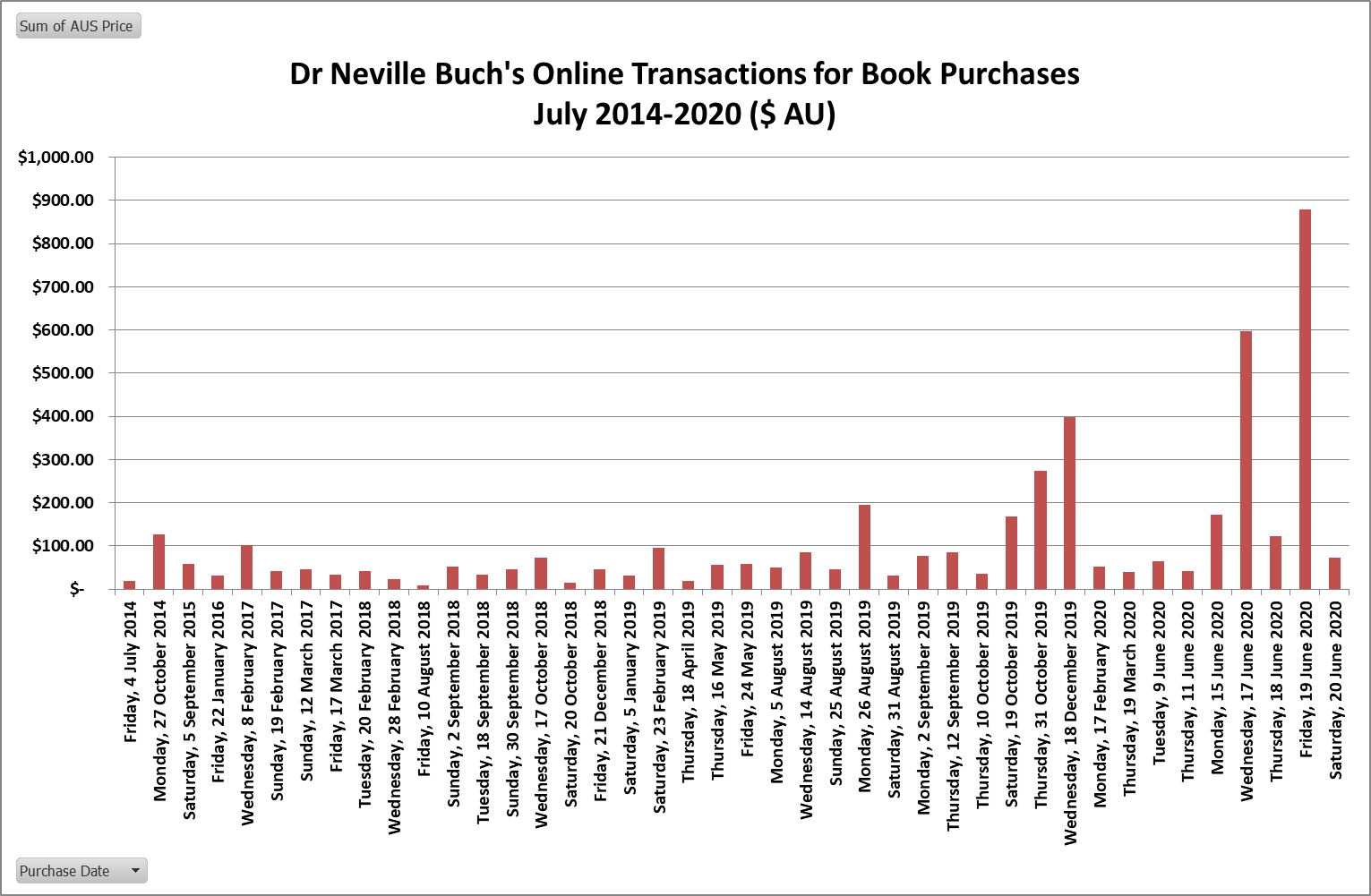What does it cost for those better historians, the ones which are trained for their profession and sacrifice for their passion in reading, research, and writing?
The question should be asked in the time of the increased pricing of the Arts course, recently announced by the Australian Government.
It is an almost impossible question to answer, but one measure will shock the ordinary reader. Recently, after spending a small fortune in book purchases, I decided to investigate what I had spent on book purchases, as far as it is possible to do so. And there is an important caveat on this measure. The cost of journal subscriptions and archived research paper downloads, and even for digital images, are not counted in the costs of book purchases. Furthermore, what can be tracked as book purchases – online transactions which I file in my email system – are probably a half to three-thirds of the purchases. Over the years a large stock of my library has been the annual second-hand book fairs, as well as the occasional new book purchase in the walk-in to a local retail shop (possibly 4-5 times a year, with 1-3 books each time). Another caveat has to be added for those economists who do not know how to count, and assume that, since there is free access to library books, the purchase costs are voluntary. Let’s make it clear. University libraries have membership fees, but, anyway, access to library books does not cut the work of an expert researcher. Yes, the researcher uses a ton of books from several libraries but research is a consistent activity where books have to be on the shelves at reach, at any moment of the process. There is a pattern of frequently revisiting published works over the years. It is not journalism!
My online records for book purchases only go back to July 2014, and it has only been in the recent years I have been able to re-stock significantly, as the graph shows. Real research and real reading is expensive (so that you actually know!). This is why many humanities students struggle when we are told the lie that humanities are a soft course and the skills are not important to the job economy. We are sold a lie by politicians, and in the parliament, with some of the key decision-makers, one suspects, that if they did read as students, it was instrumental reading (the kind of knowledge where you don’t really know what you are talking about)….or are they bare-faced lying?
In the lying is the abuse of statistics, and so I will make it clear that the $4,500 spent in online transactions, since July 2014, is only a quarter (possibly) of what is actually spent on book purchases. The numbers are rubbery but the statistics can give a fair picture, if other qualitative data is “counted”; like the fact that the costs go a whole larger scale: including journal subscriptions, archived research paper downloads, digital images, and conference costs.
How much income do you think I made since 2014? I will give you a clue, in the last financial taxable year it has been $69,792, and – this is the key point – none of that income of the last two years has come from contracts or even partial “employment”. The government economic numbers tell lies. And the pricing of the ‘basic’ Science and Arts courses against discriminatory pricing, constructed on the student-driven funding model, is also built on the pack of dishonesties.
Image Source: ID 107547019 © Vtt Studio | Dreamstime.com
Neville Buch
Latest posts by Neville Buch (see all)
- J. D. Vance’s Insult to America is to Propagandize American Modernism - July 26, 2024
- Why both the two majority Australian political parties get it wrong, and why Australia is following the United States into ‘Higher Education’ idiocy - July 23, 2024
- Populist Nationalism Will Not Deliver; We have been Here Before, many times… - July 20, 2024

